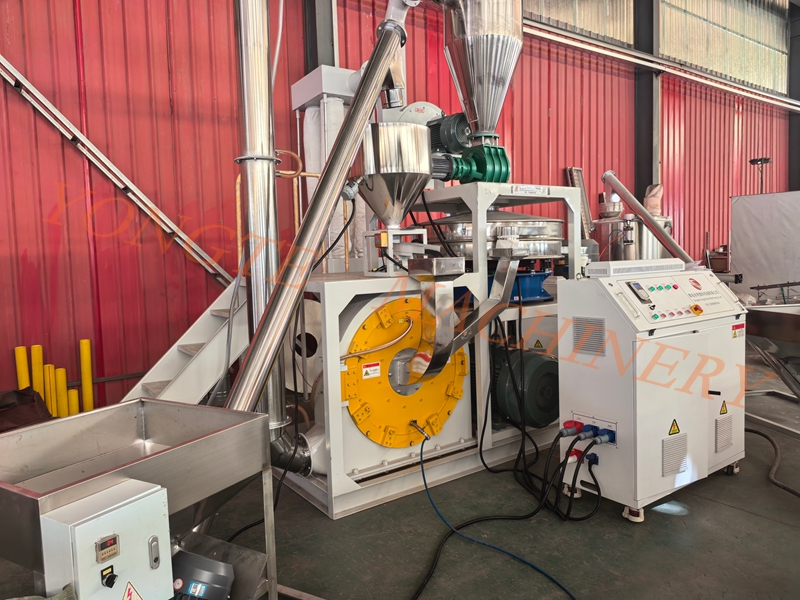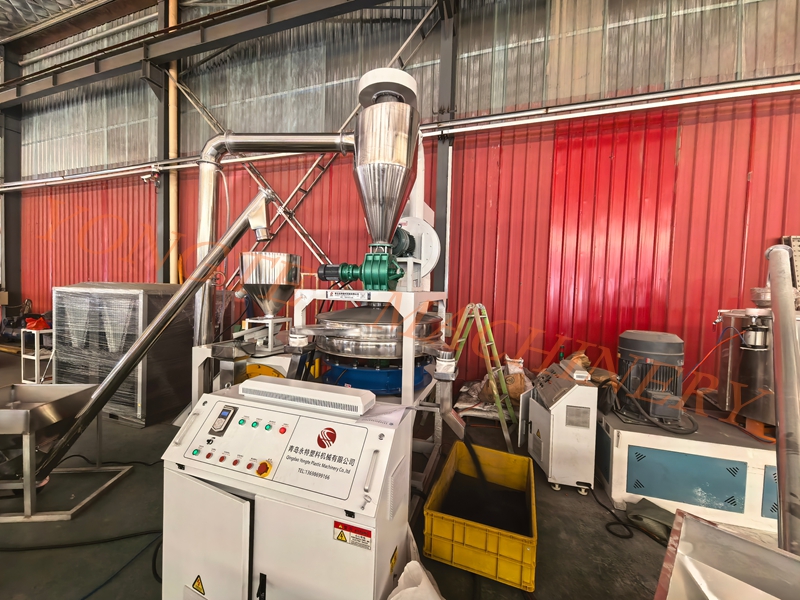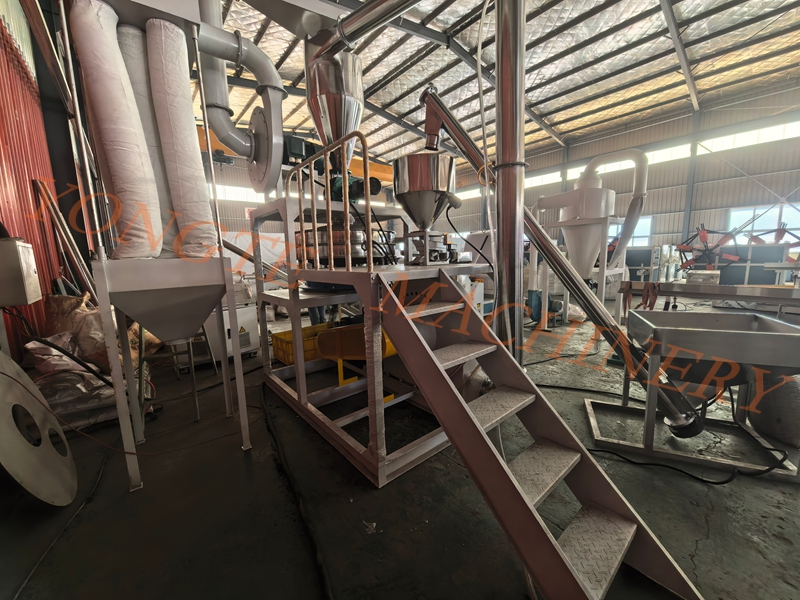Yongte Plastic Machinery Breaks the Gap in Rubber Powder Processing: Reducing Costs and Increasing Efficiency
Recently, Yongte Plastic Machinery's PE grinding mill upgrade and modification solution has garnered widespread attention in the scrap tire recycling industry. This solution reduces equipment procurement costs by over 40% while achieving rubber powder output quality comparable to that of professional ambient temperature rubber grinding mills. This provides a cost-effective path for small and medium-sized recycling companies facing financial pressures to enter the high-value-added rubber powder processing market.
Among scrap tire recycling, ambient temperature rubber powder has become a mainstream recycling method because it can meet the medium-fineness requirements of mid- and downstream applications such as asphalt modification and waterproofing. However, professional rubber grinding equipment with integrated core modules such as pre-plasticization and dual cooling is expensive, with market quotes for equipment with a processing capacity of 1-2 tons/hour generally ranging from 500,000 to 800,000 yuan, making it difficult for many small and medium-sized enterprises with limited funds to enter the market. Yongte Plastic Machinery's modification solution addresses this industry pain point. By systematically upgrading existing PE grinding mills, it transforms low-cost equipment into professional-grade processing capabilities.

Cost control is the core advantage of this modification solution. Compared to professional equipment of the same specifications, procurement costs can be reduced by over 40%. A Shandong environmental protection materials company reported a procurement case study, where a modified unit with a processing capacity of 1.2 tons per hour cost only 280,000 yuan, a 45% saving compared to professional equipment. During operation, the comprehensive energy consumption cost per ton of rubber processed is approximately 80 yuan, roughly comparable to professional equipment. Most users report that under stable operating conditions, the equipment's payback period can be shortened to less than six months, effectively alleviating the initial investment pressure for small and medium-sized enterprises.
In terms of performance, to ensure professional-grade quality, Yongte Plastics Machinery has upgraded three key aspects. At the feed end, a pre-plasticizing module featuring dual shear rollers and an atomized softener inlet is added. This utilizes mechanical shearing at 3,000-5,000 rpm, combined with the precise addition of 1%-3% softener, to reduce rubber hardness from Shore A 60-70 to Shore A 40-50, fundamentally resolving the processing challenge of rubber's high elasticity that makes it difficult to crush. The core grinding components have been upgraded to tungsten carbide-coated toothed rollers, boasting a hardness of HRC 70-75 and an eightfold increase in wear resistance, effectively withstanding the impact of residual steel wire in waste rubber. The system also incorporates a dual temperature control design featuring a spiral water-cooling jacket and multi-directional air-cooling nozzles, ensuring a stable grinding chamber temperature below 40°C and significantly reducing the rubber powder wall adhesion rate from 30% to less than 5%. Furthermore, a built-in air classifier and coarse powder return line are integrated at the end of the system. The adjustable classifying wheel speed of 3,000-10,000 rpm enables precise control of the finished product fineness from 40-120 mesh, maintaining a consistent yield of over 95%.

Third-party testing has verified that after 300 hours of continuous operation, the core grinding component wear of this modified equipment was only 0.8 mm. The impurity content of the produced rubber powder was ≤1%, and the fineness fluctuation was strictly controlled within ±5 mesh. All indicators met the national standard for "Recycled Rubber Powder from Scrap Tires" (GB/T 19208-2021). Currently, over ten small and medium-sized recycling companies have adopted this equipment, and the rubber powder produced has been successfully applied in areas such as road asphalt modification and roof waterproofing membranes, achieving market recognition comparable to that of specialized equipment.

From an industry perspective, the value of this solution lies not only in lowering the entry barrier but also in promoting the overall scale-up and low-carbonization of rubber grinding. Industry experts point out that small and medium-sized enterprises account for over 70% of my country's scrap tire recycling industry. The modified equipment, with its "low cost + high performance" offering, has broken the market monopoly of high-priced specialized equipment, helping more companies transition from primary crushing to high-value-added deep processing. Furthermore, the large-scale production of rubber powder also brings significant environmental benefits. It is estimated that every ton of rubber powder produced reduces carbon dioxide emissions by approximately 800 kilograms, providing a practical technical path to increasing the recycling rate of my country's over 300 million scrap tires annually and contributing to the achievement of the "dual carbon" goals.
It is reported that Yongte Plastic Machinery will subsequently launch a series of customized solutions of 0.5-3 tons/hour based on different processing volume requirements, and is actively developing modification technology with higher fineness of 120-150 mesh, aiming to continuously strengthen its core advantage of "low cost and high performance" and provide more technical support for the sustainable development of the waste tire recycling industry.